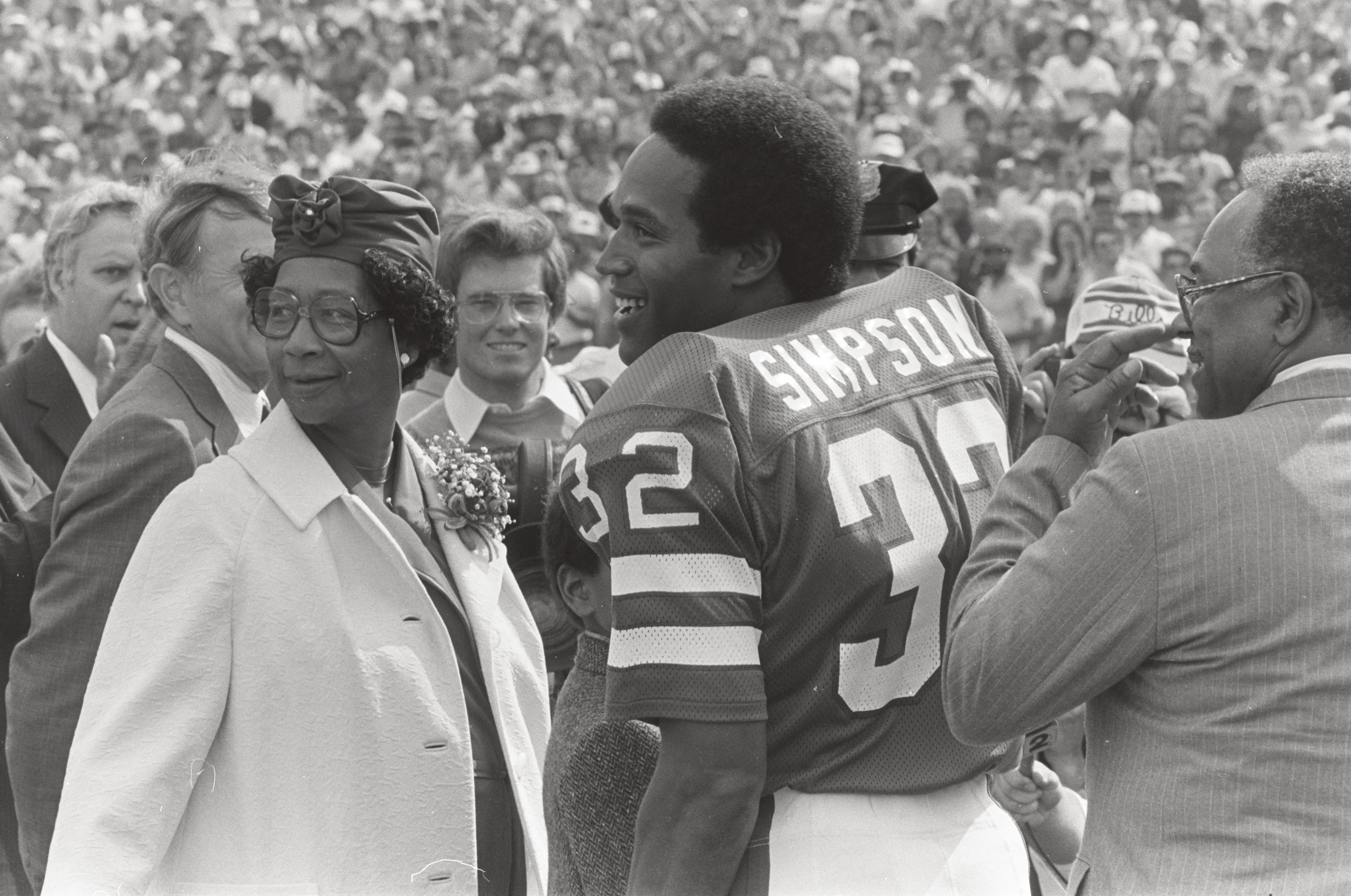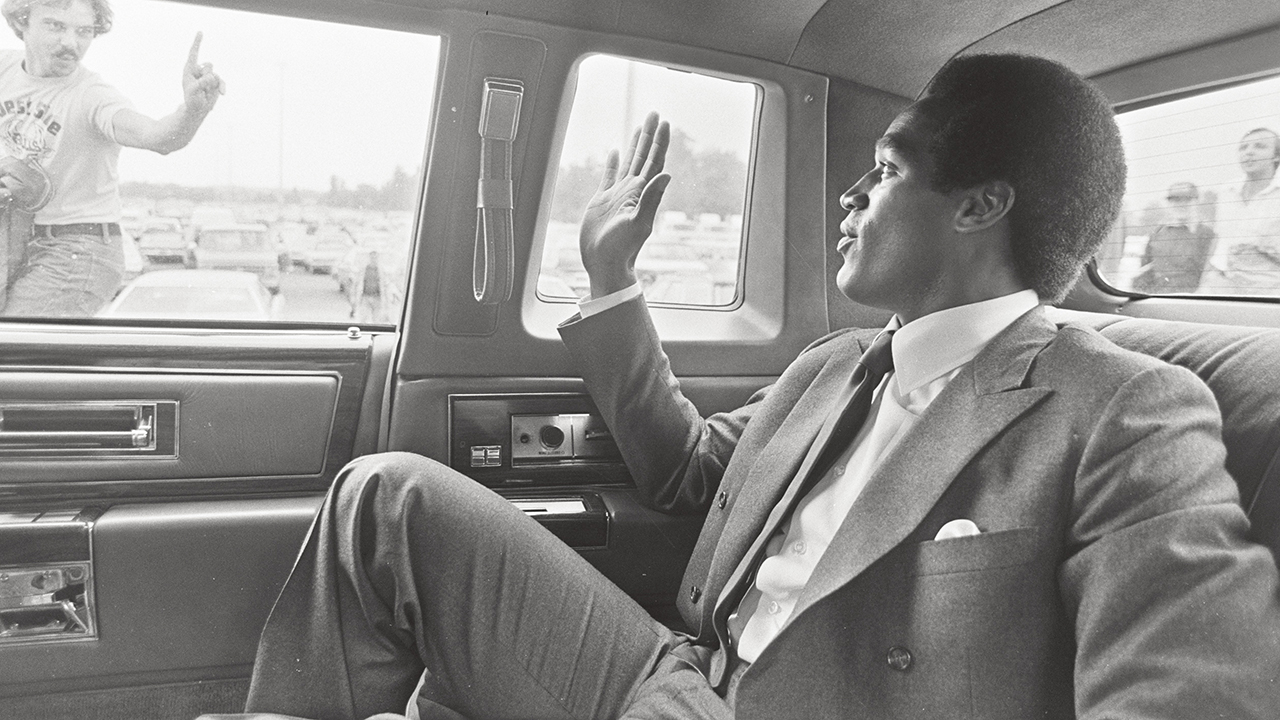LOS ANGELES — Hindsight is complicated.
Viewers revisited the murder trial of O.J. Simpson already this year in FX's The People v. O.J. Simpson: American Crime Story. That series had glitter: Cuba Gooding Jr. played Simpson, John Travolta was Robert Shapiro. Ratings — and critical acclaim — were through the roof.
Now, a more nuanced, spectacular and broader investigation of the case, and his life, arrives in O.J.: Made in America, a nearly eight-hour documentary series (Saturday, 9 ET/PT on ABC, concluding on ESPN June 14-18, 9 ET/PT). This time, the story starts in the 1960s, charting racial tensions with the Los Angeles police, Simpson's rise as a football star, pitchman and Naked Gun-anointed celebrity — and his distance from activism.
As Simpson famously put it, “I’m not black, I’m O.J.”
Made in America filmmaker Ezra Edelman sighs in a hotel lobby at the mere mention of the FX series, which focused only on Simpson's trial for the 1994 murder of ex-wife Nicole Brown Simpson and her companion, Ronald Goldman. “I was concerned that after the show engaged people in that way there might not be room for ours," he says, claiming he hasn't watched. “I put my hands over my ears and I covered my eyes.”
But critics are widely disagreeing with the notion of too much Simpson. The New York Times calls Made in America “staggering”; New York magazine guaranteed it will “blow your mind;” and Uproxx deems it “the ‘other’ O.J. Simpson project, and the only one that matters.”
Edelman was pitched the project two years ago, but initially declined; he was in college during the trial and remembers only the infamous Bronco car chase and the verdict. But ESPN Films offered up an extended film for its 30 for 30 series.

“I don’t care about the question of his guilt or innocence,” he says. “What I am interested in is this history and this context and who he was as a cultural figure before (the trial)."
It took months — and sometimes years — to get those involved in the case to speak, including jurors and defense attorneys Carl Douglas, F. Lee Bailey and Barry Scheck. Disgraced former police detective Mark Fuhrman agreed late in the process. (Edelman wrote Simpson a letter in prison but did not receive a response.)
“I probably said no to him more than a half dozen times,” says former L.A. district attorney Gil Garcetti, who hadn’t spoken publicly about the case in 21 years. The final product, particularly its attention to L.A. history and the Rodney King police-brutality trial, “helped give me perspective on the case, too,” he says.
A new generation met prosecutor Marcia Clark (played by Sarah Paulson, and belatedly branded a feminist icon) in the FX series. In Made In America, Clark, agreed to speak for herself. Revisiting those years was "painful," she admits. "But at the same time I thought as I watched the documentary, maybe now people will understand what we were up against.”
Some of the video footage is so intimate it’s shocking. Edelman takes viewers inside O.J.’s homecoming party, and found tape of O.J. the day he moved out of his Brentwood home.
Clark says she found the footage of Simpson's early life revelatory. “What I can tell you was really an eye-opener for me was how good an actor Simpson really was,” she says. “He was so affable and so charming.”
It reminded her of his courtroom presence. “You could see where the (camera’s) eye was moving and he would watch it. And every time it was on him he’d have this very innocent expression, very mild-mannered expression," she says. "The minute the camera was off him, he glowered, he looked menacing. It was like Jekyll and Hyde.”
The final chapter of Made In America explores the years after his acquittal, including his civil trial and the armed robbery that led to his current prison sentence of nine to 33 years.
“When you’re on trial for murder and you get acquitted, where do you go from there, especially when a large percentage of Americans believe you to be guilty?" Edelman says. "What is your life like? Those were the questions that drove my interest.”


